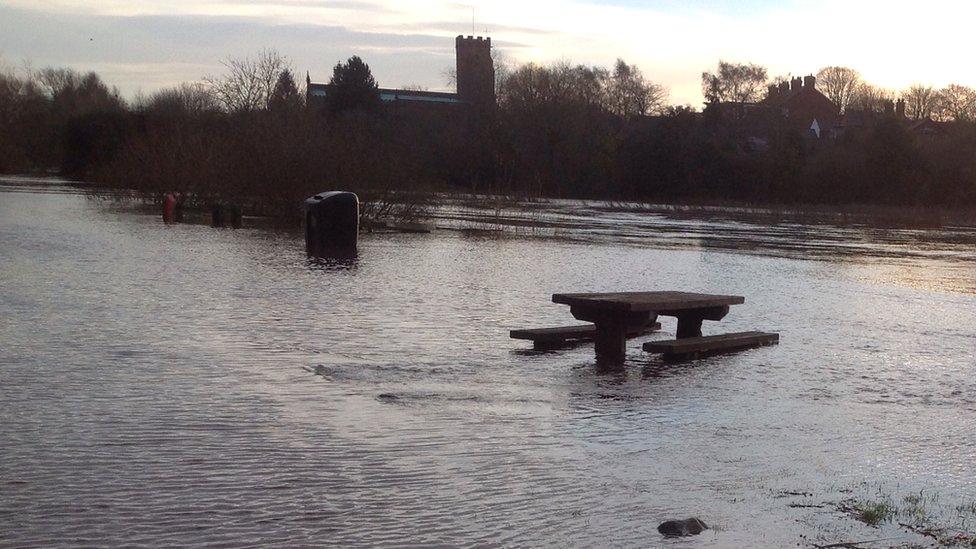Storm Desmond: Thousands of people flooded out of homes
- Published
Aerial footage filmed on Monday morning shows the flood levels in Carlisle
Thousands of people have been flooded out of their homes or left without power after Storm Desmond wreaked havoc in parts of the UK.
In Cumbria and Lancashire more than 43,000 homes are suffering from power cuts, while an estimated 5,200 homes have been affected by flooding.
The weather has claimed two lives - in Cumbria and the Republic of Ireland.
David Cameron said the flood defences in Cumbria "were not enough" and some people might not be home for Christmas.
Storm Desmond lashed parts of Northern Ireland, north Wales, southern Scotland and especially north-west England over the weekend, and more heavy rain is expected this week.
Record-breaking amounts of rain fell in Cumbria, the worst-hit county - prompting the county to declare a major incident.
'Absolutely horrific'
The devastation has resulted in criticism of the government after multimillion-pound defences built following floods in Cumbria in 2005 failed to keep the deluge out from people's homes.
During a visit to Carlisle, the prime minister said the flooding was "absolutely horrific" and he promised to re-examine Cumbria's flood defence plans.
In Cumbria, police said a man's body had been recovered from a river.
And the body of a 70-year-old man from County Tyrone, in Northern Ireland, was found on a cross-border road in County Monaghan. It is understood his car got stuck in flooding and he was swept away when he got out of this car.
In other developments:
Electricity North West said power had been restored to 1,200 customers in Cumbria, external, but more than 1,450 remain without, mostly in Carlisle
Power was lost on Monday afternoon at 42,000 properties across Lancaster, Morecambe, Heysham and Carnforth, the company said
On Monday night, the energy firm said 19,000 out of the 42,000 customers are still being supplied by generators, external that were mobilised on Sunday night, and plans are in place to begin restoring supply from 08:00 GMT on Tuesday 8 December
More than 15 severe flood warnings, external - indicating danger to life - remain in place mostly in northern England
About 40 schools closed, external in Cumbria, but the majority will reopen on Tuesday. Lancaster University has cancelled teaching for the rest of term after losing power across much of the campus
Five rescue centres are open, external across Cumbria for those forced to leave their homes
Cumbria Police say "high-visibility" and round-the clock patrols are taking place of flooded properties
Cumbria Partnership NHS Foundation Trust has said it will only be running essential services, external
Cumberland Infirmary in Carlisle is being powered by a back-up generator
In Scotland more than 20 flood warnings and alerts are in place, external with some main roads closed owing to flooding
There are no trains running between England and Scotland via Preston, external, and roads have closed in the worst-affected areas
In Northern Ireland, major clean-up operations are under way in parts of counties Tyrone and Fermanagh
The Association of British Insurers said the industry was "mobilising a small army" of claims managers and others to help those affected by the flooding
Mr Cameron, who chaired a meeting of the government's Cobra emergency response committee on Monday morning, said the government would fully reimburse councils for the costs of dealing with flooding.
The immediate response had to be to find alternative accommodation for those who had been flooded out of their homes, and help with their insurance claims, he said.
"After every flood, the thing to do is sit down, look at the money you're spending, look at what you're building, look at what you're planning to build in the future and ask, is it enough?" he said.
Emergency crews praised
Labour leader Jeremy Corbyn accused the government of failing to do enough to tackle flooding.
"Last year, the prime minister promised that 'money is no object' in dealing with flooding, itself a consequence of the destruction of our environment.
"But this has proved to be yet another false promise. In the last parliament, the government slashed spending on flood defences before the 2014 winter floods."
'Our estate has been flooded'
Making a statement in the House of Commons, Environment Secretary Liz Truss praised the work of the emergency crews, with some travelling from south Wales, Somerset and Lincolnshire to help.
She expressed her "deepest sympathy" to all those affected, and said there had been a number of weather-related deaths over the weekend.

Analysis
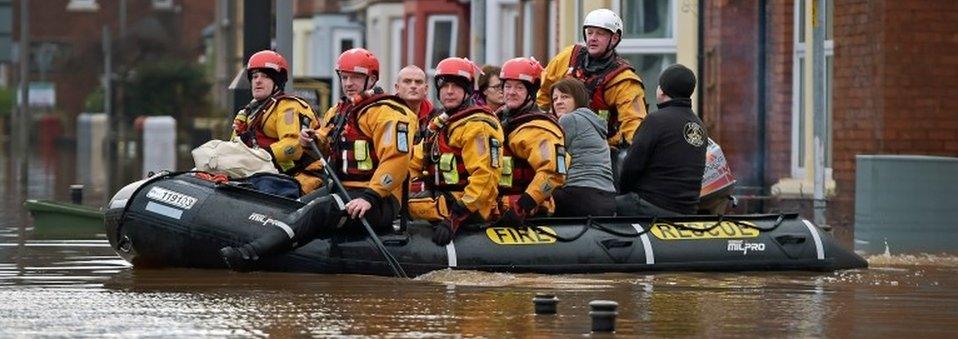
By David Shukman, BBC science editor
The ferocity of the storm and the sheer volume of the rainfall have inevitably raised questions about whether global warming has exacerbated the risk. The answer is not straightforward.
Scientists always shy away from blaming any particular weather event on climate change. But they also point to a basic physical property of the atmosphere: that warmer air can hold more moisture.
That means that rising temperatures are likely to lead to storms that may drop more rain - and in more intense bursts. And figures from the Met Office do point to a slight increase in the intensity of rainfall in the UK over the past 60 years.
Flood engineers already try to take account of climate change in their planning. That work needs constant updating.
And whatever the factors involved - everything from saturated soil to new acres of car park to the always fickle British weather - many people here in Cumbria will be asking whether the authorities are getting their calculations right.
In pictures: Storm Desmond chaos
Insurance advice for flooding victims

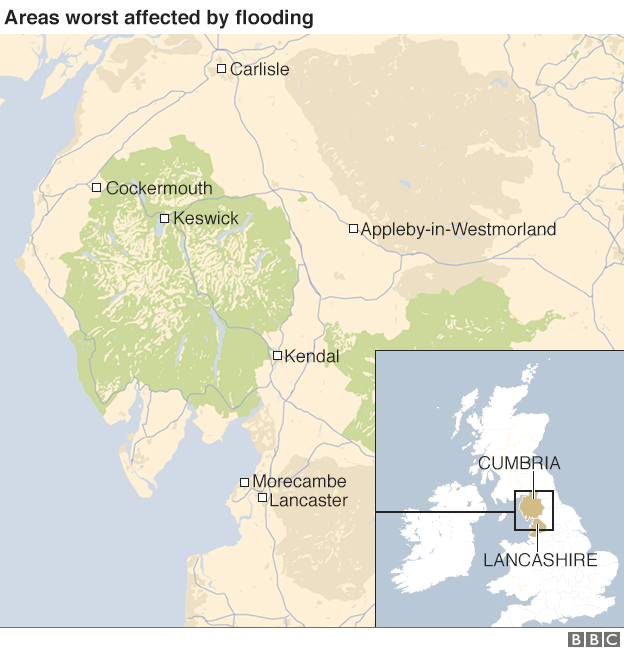
Keswick resident Rich Gale, who experienced previous floods in 2005 and 2009, said he had felt "reasonably safe" since the Environment Agency extended the town's flood defence wall and he added protection to his own home.
But he said: "We stayed in our house because after the 2009 flood we bought flood defences for our home so we thought we'd better stay in and try and mop up any leaks that come in, but we just got overwhelmed and we ended up leaving our house."
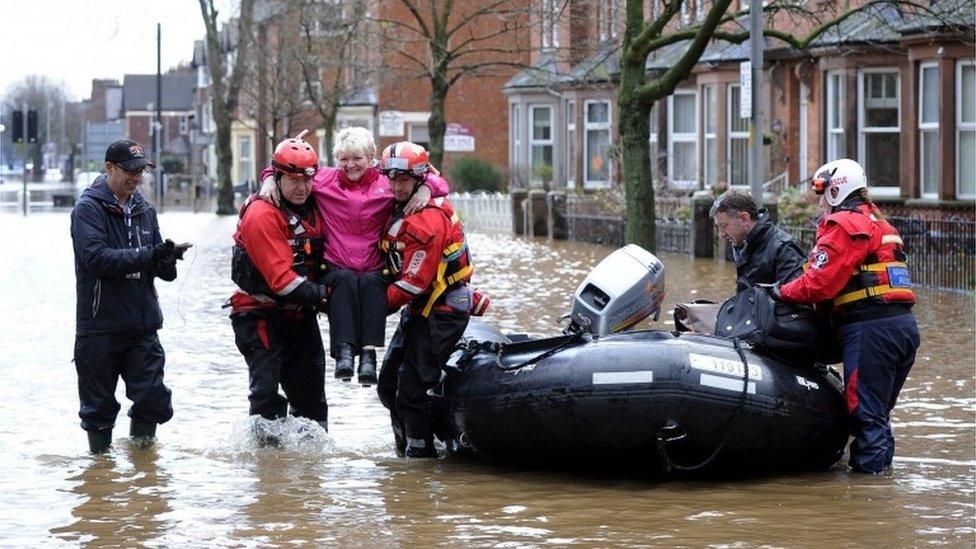
Rescue workers have gone from house to house in some Carlisle streets to ensure people's safety
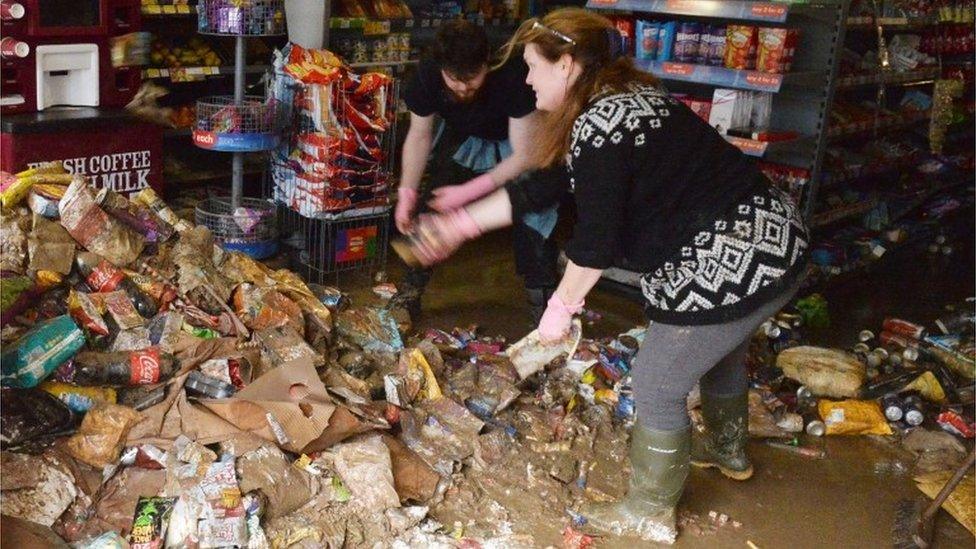
The clean-up begins at a shop in Cockermouth
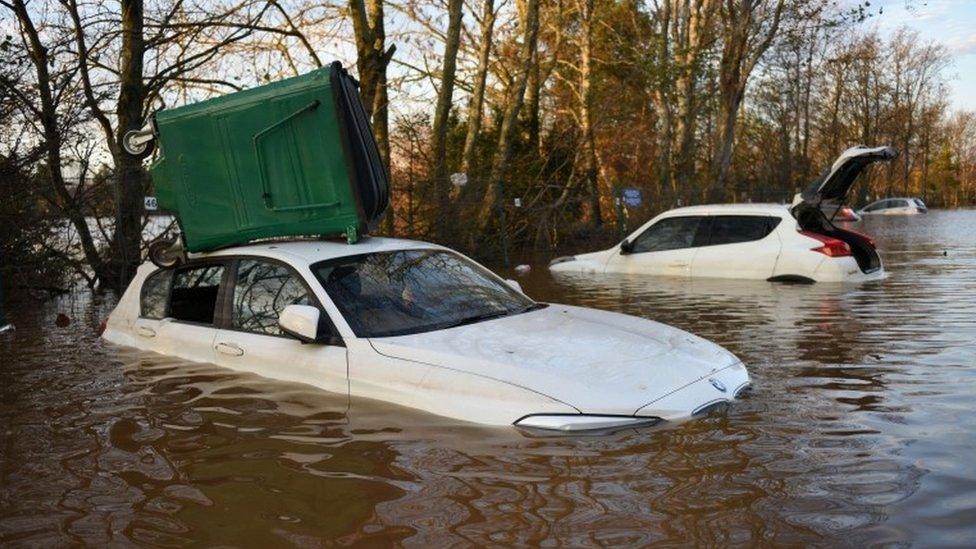
The car park outside Carlisle United Football Club
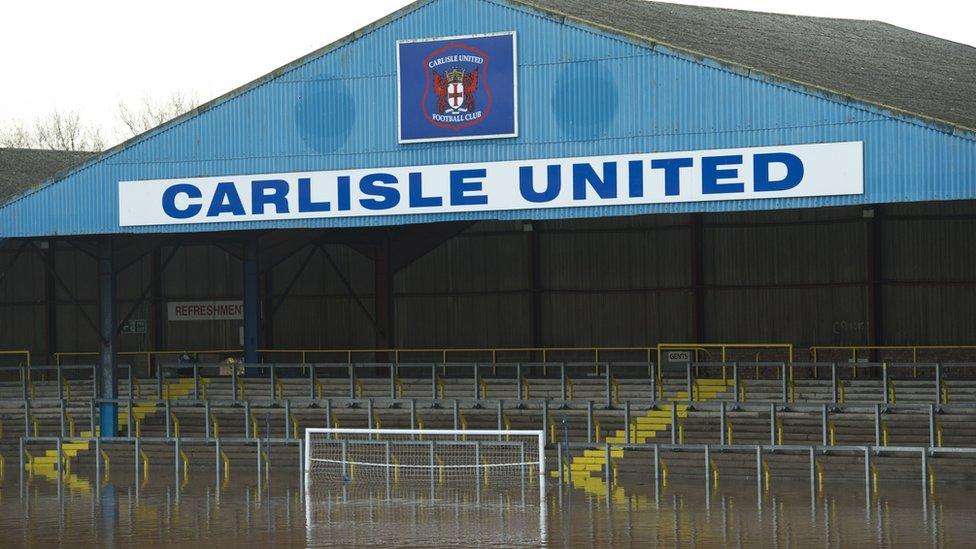
And the scene inside

The clear-up at the Carlisle home of Julie and Campbell Hannah
Mobile phone footage of the extent of the UK floods

The Met Office says Honister in Cumbria received 341.4mm (13.4in) of rain in the 24-hour period from 18:30 GMT on Friday 4 December to 18:30 GMT on Saturday 5 December.
This beats the previous UK record set at Seathwaite, also in Cumbria, of 316.4mm (12.4in) on 19 November 2009.
'More extreme weather'
Prof Dame Julia Slingo, chief scientist at the Met Office, said these "extraordinary amounts of water" broke records going back to the 1800s.
While there was no definitive answer on the cause, she added, "all the evidence" suggested climate change had a role to play.
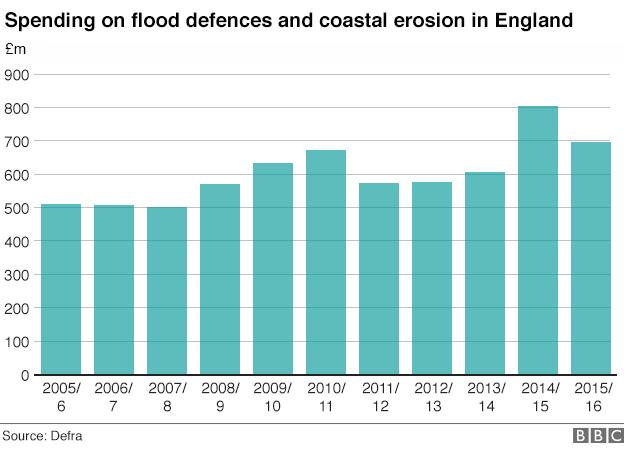
Stewart Young, leader of Cumbria County Council, said there needed to be an investigation into the flood defences.
"That's what's going to have to happen because we can't continue to have events like this, we just won't be able to cope," he said.
Liberal Democrat leader Tim Farron - whose Westmorland and Lonsdale constituency is in Cumbria - said it was "not about pointing the finger" as the reality was "we are just getting more extreme weather".
"The question we do need to ask ourselves is whether is was right to cancel some of the funding for flood defence schemes over the last few years," he said.
Live flood warnings from the Environment Agency and the Scottish Environment Protection Agency.
Tap here, external for up to date information.


Have you been affected by Storm Desmond? You can share your comments and experience by emailing haveyoursay@bbc.co.uk, external.
Please include a contact number if you are willing to speak to a BBC journalist. You can also contact us in the following ways:
WhatsApp: +44 7525 900971
Send pictures/video to yourpics@bbc.co.uk, external
Tweet: @BBC_HaveYourSay, external
Send an SMS or MMS to 61124
- Published5 December 2015
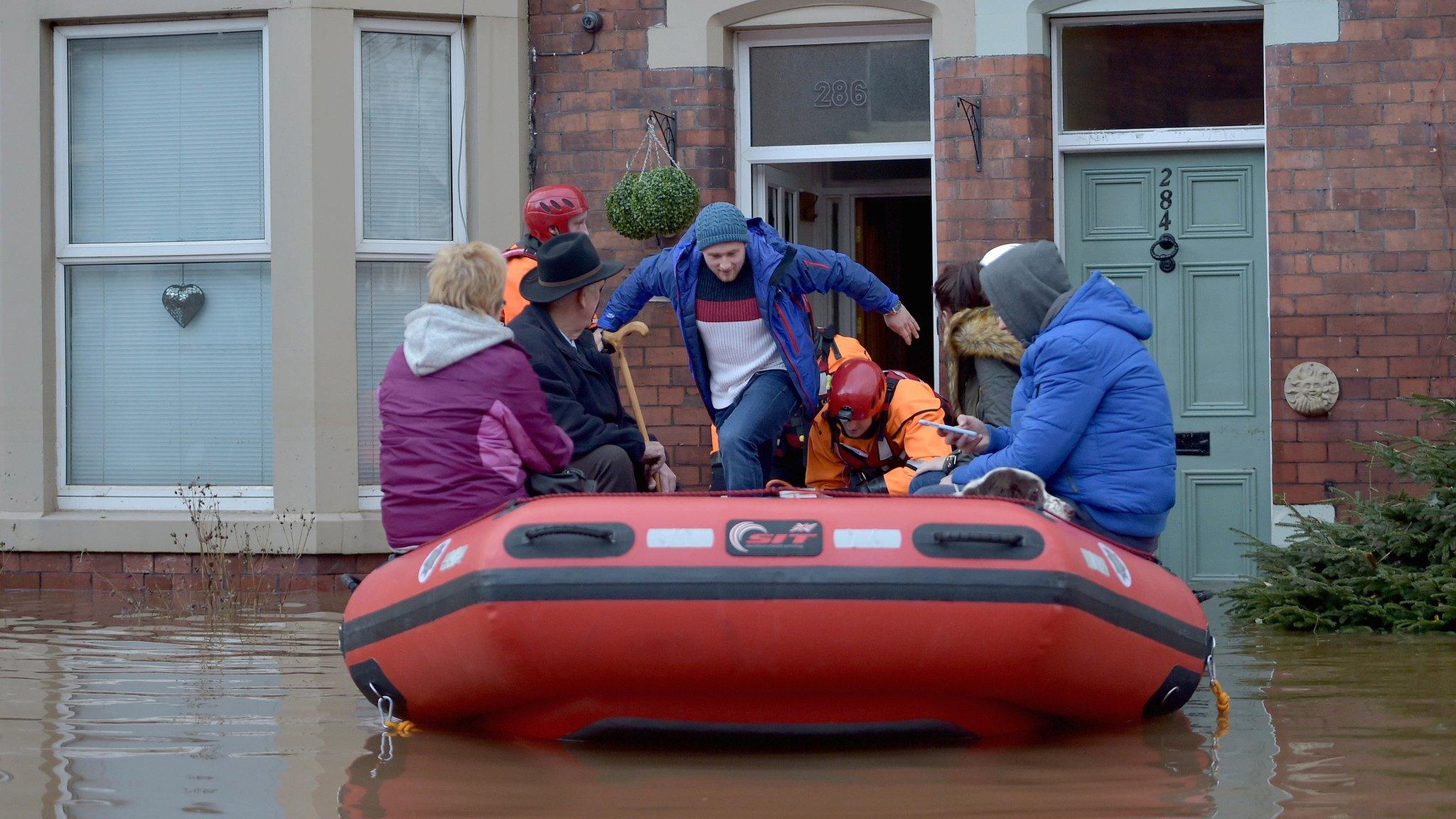
- Published7 December 2015
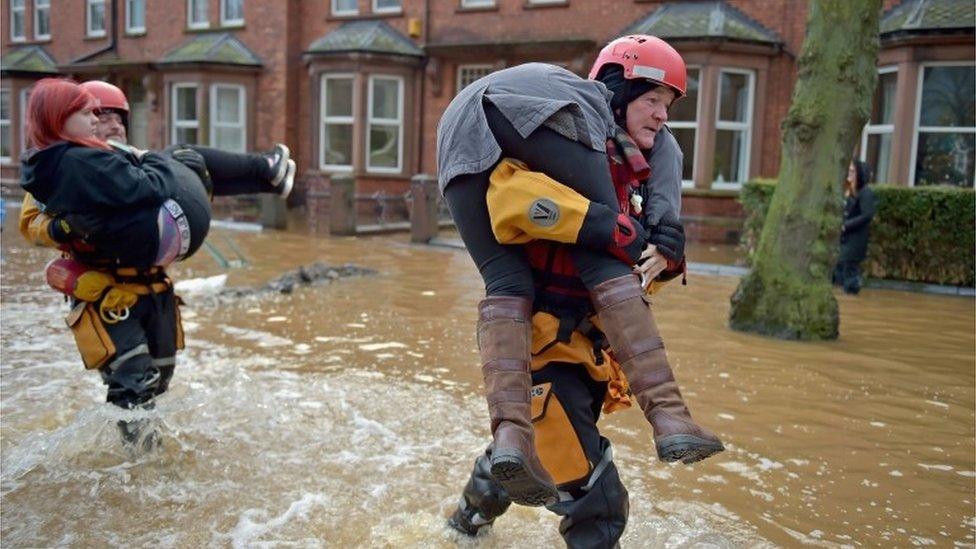
- Published7 December 2015
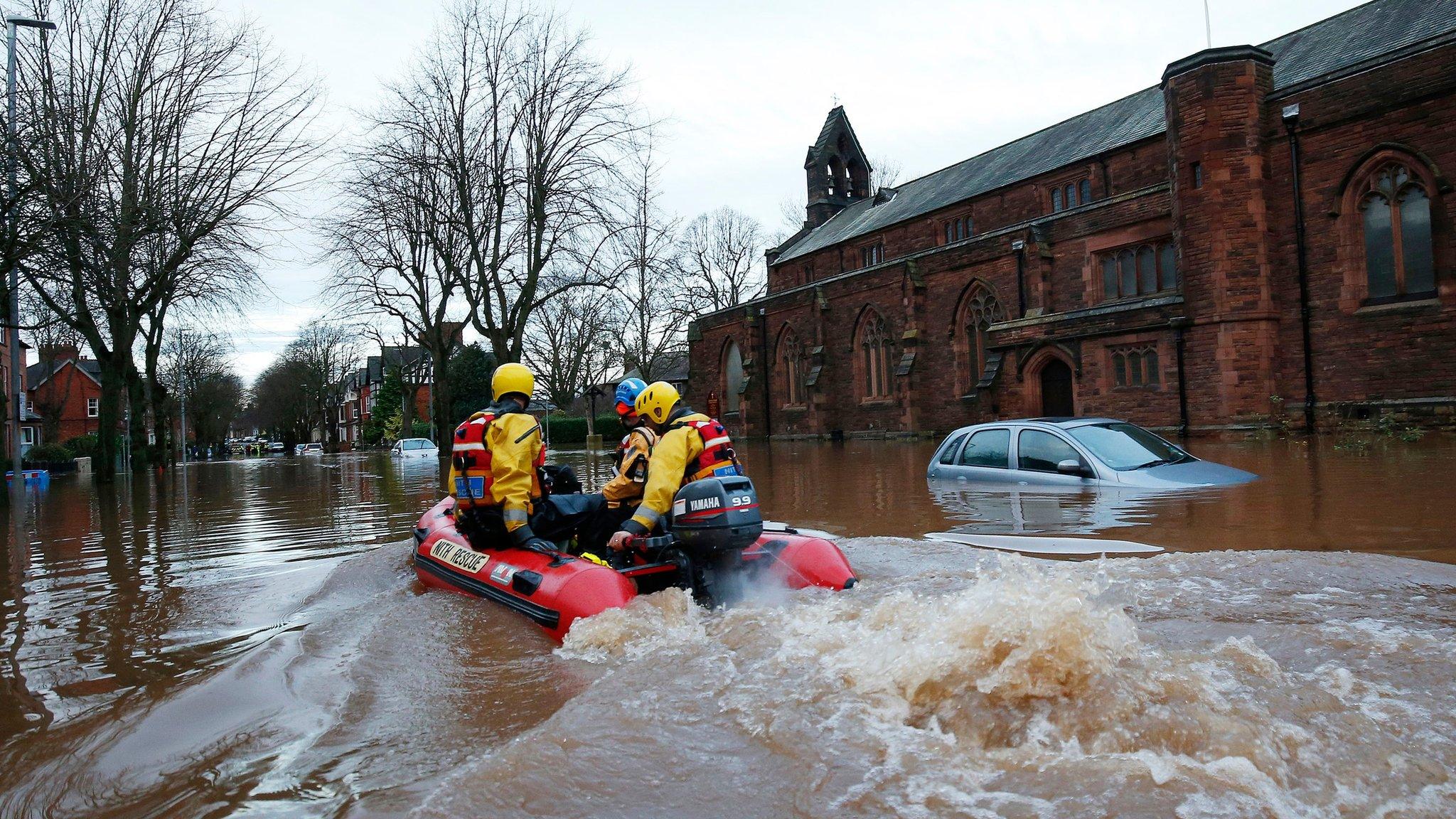
- Published7 December 2015
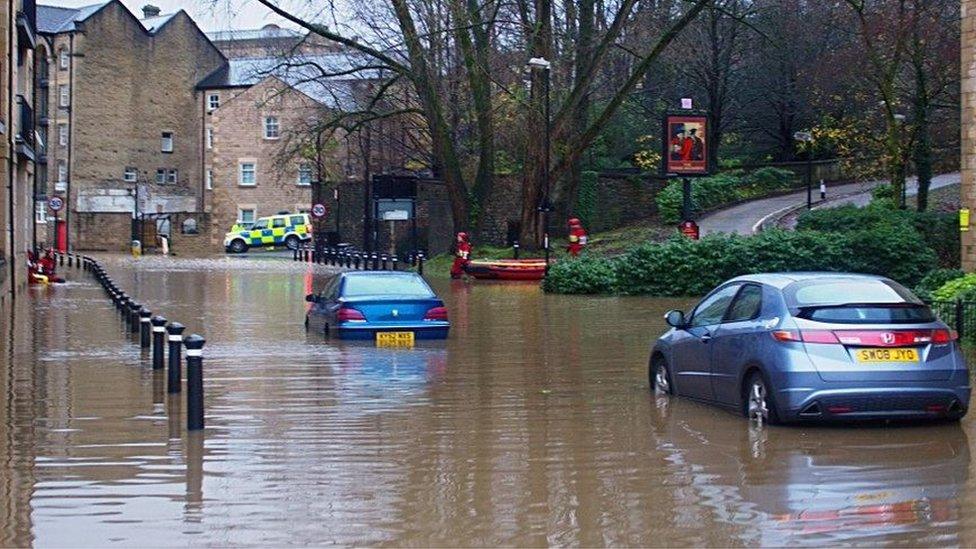
- Published7 December 2015
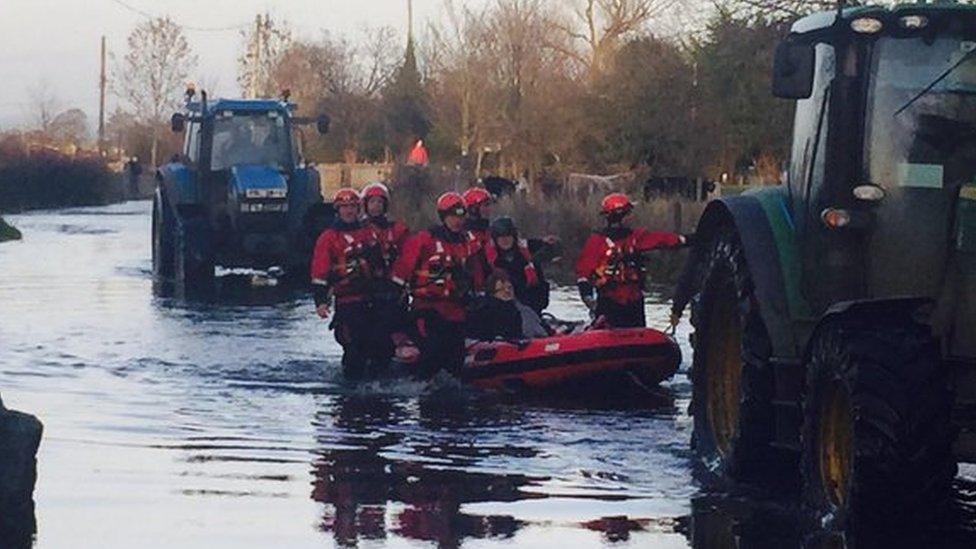
- Published7 December 2015
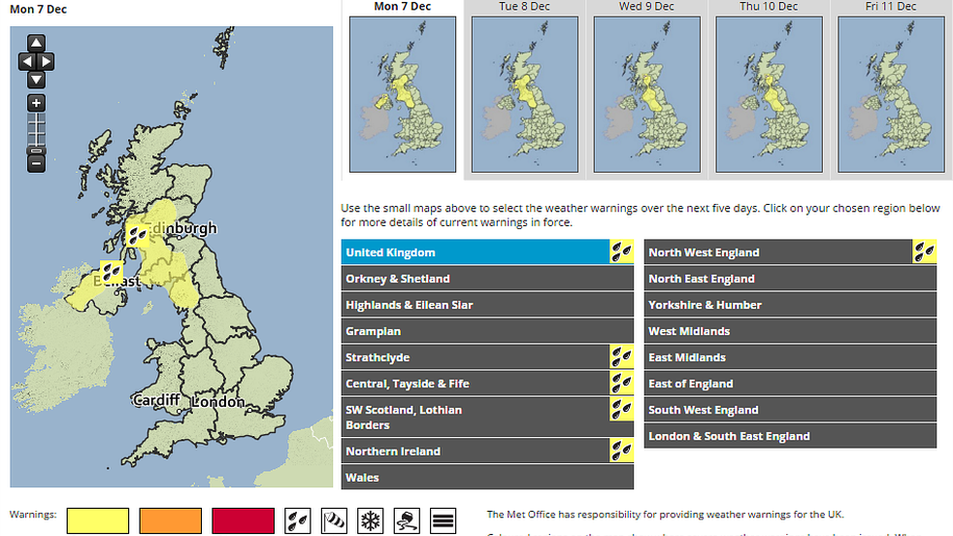
- Published7 December 2015
